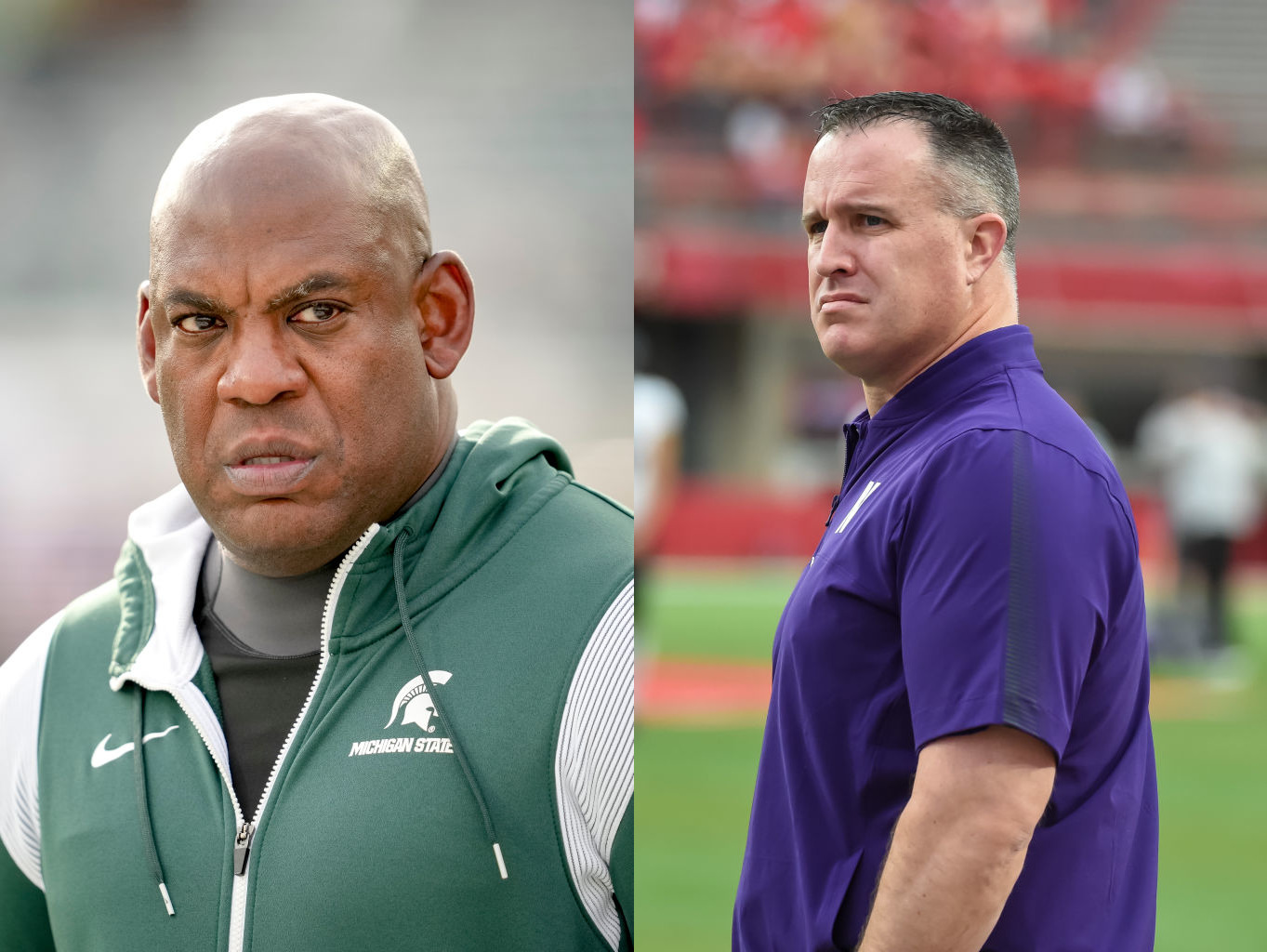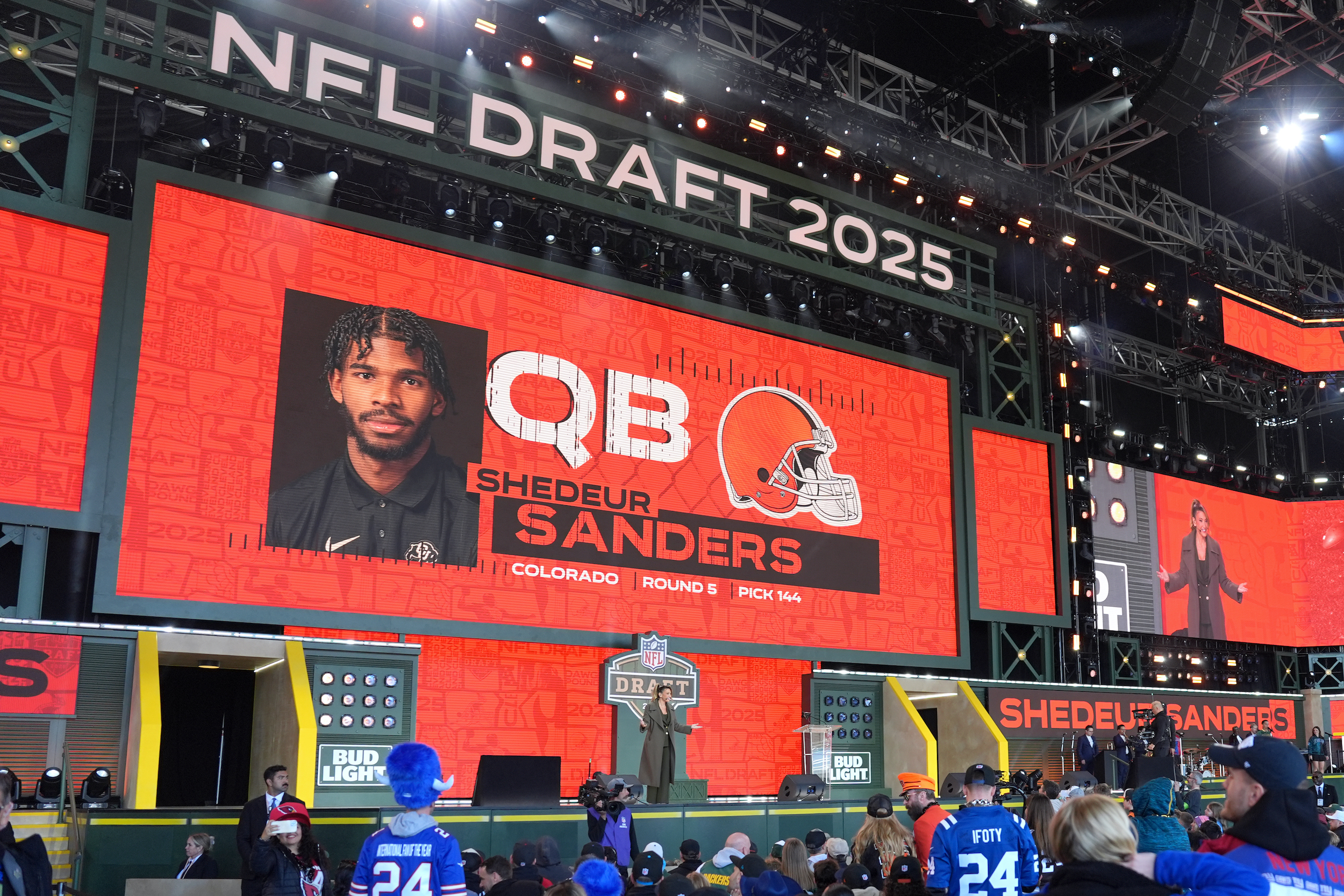Fired college football coaches Mel Tucker and Pat Fitzgerald both made clear this week that they would not go gentle into that good night. Instead, they are going to fight about money. Because it's always about the money when it comes to Division I college football coaches.
Tucker was a few years into a 10-year, $95 million contract when he was fired after anti-rape advocate Brenda Tracy, who had worked with Michigan State, reported to the university that Tucker had sexually harassed her, including masturbating on a phone call with her without her consent. Fitzgerald, far and away Northwestern's most successful head coach and one of their best players ever to boot, appeared to bet set for life until one former player—followed by many more—went public with details of rampant hazing within the program. Fitzgerald's contract details weren't publicly known because Northwestern is a private university, but according to a lawsuit he filed against the school this week, Fitzgerald claims he would have been owed $43 million had he not been fired.
Neither university took action quickly, nor swiftly. Northwestern conducted its investigation and said its response would be to suspend Fitzgerald for two weeks. It was only after a player who said he had been hazed spoke out to The Daily Northwestern and made public the details of how that hazing actually worked—including a naked human "car wash" and players being held down and dry-humped against their will by players donning masks—that Northwestern suddenly decided that, actually, it probably should do more than suspend Fitzgerald for being the person in charge when all that happened. Days after the The Daily's story, Fitzgerald was fired. In the weeks following, more than a dozen former football players would file lawsuits against the university, with many having similar details.
At Michigan State, Tracy reported what happened to the university in December and the investigation concluded in late July, with a hearing scheduled for this month. But the university didn't take any immediate action beyond placing limitations on Tucker's interactions with Tracy. The investigation's findings eventually became public via USA Today, and a few weeks after that the university realized they did not need to wait until after the hearing to fire Tucker, and did just that.
There are plenty of unanswered questions about what led up to the firings of Fitzgerald and Tucker for cause, which would save the universities millions of dollars. These include the questions about why nothing happened until after people started talking to reporters. But those unanswered questions do not immediately vindicate Tucker and Fitzgerald, either.
On Thursday, both men fired back at their respective former employers in an attempt to not lose those millions of dollars. Fitzgerald sued Northwestern in Cook County Circuit Court. The argument put forward in the 83-page document can be boiled down to Fitzgerald claiming he didn't know about the hazing and, therefore, Northwestern firing him breached his contract. It also floats the idea that the first person to report hazing "was planning to report false hazing allegations to Northwestern with the intention of having Fitzgerald’s employment harmed and/or terminated." It does not address the many people who came forward with similar stories afterward. As for what those many men said happen, one of Fitzgerald's lawyers, Dan Webb, told reporters, per the Chicago Sun-Times, ‘‘If you put young men in a locker room, do they sometimes engage in behavior that someone could say, on a given day, they were being difficult with each other? Players sometimes do that in every locker room in America." He also tried to pass off what happened as "horseplay."
Attorneys representing the men suing Northwestern responded later in the day. Antonio Romanucci told reporters: "That is deeply offensive to those who know the truth. And how do you back up that all of these players come forward and make allegations? What they are saying is truthful and honest, and it's taken courage for them to get over this. What that lawsuit that was filed today really was? It was a public relations puff piece for Patrick Fitzgerald."
Tucker was expected to appear Thursday at a hearing regarding Michigan State's investigation. Instead, he did not appear and sent an eight-page letter to Michigan State saying that a "serious medical condition" prevented him from appearing and that his legal team had found new evidence that would clear his name, per USA Today. The letter also included almost 100 pages of messages between Tracy and her deceased best friend and booking assistant but, per The Athletic, "nearly all of the messages are redacted in the version sent to the media, making it difficult to verify any context around the handful of unredacted messages." Tracy did attend the hearing.
Whether there is any merit to these lawsuits will ultimately be up to a court to decide, and until that point both Northwestern and Michigan State will continue to pour time and resources into their fights to avoid giving either of these men the big payouts they are seeking. That such fights are even taking place is a reminder of just how much influence college football coaches have gained over the institutions that employ them. Almost nobody enjoys the sort of employment protections that a college football coach's contract blesses him with, and it's hard not to feel a little baffled when a coach who went 4-20 over his last two seasons demands an eight-figure payout. But that's the world these universities have created for themselves, and now they have to live in it.
A copy of Fitzgerald's lawsuit is below.






